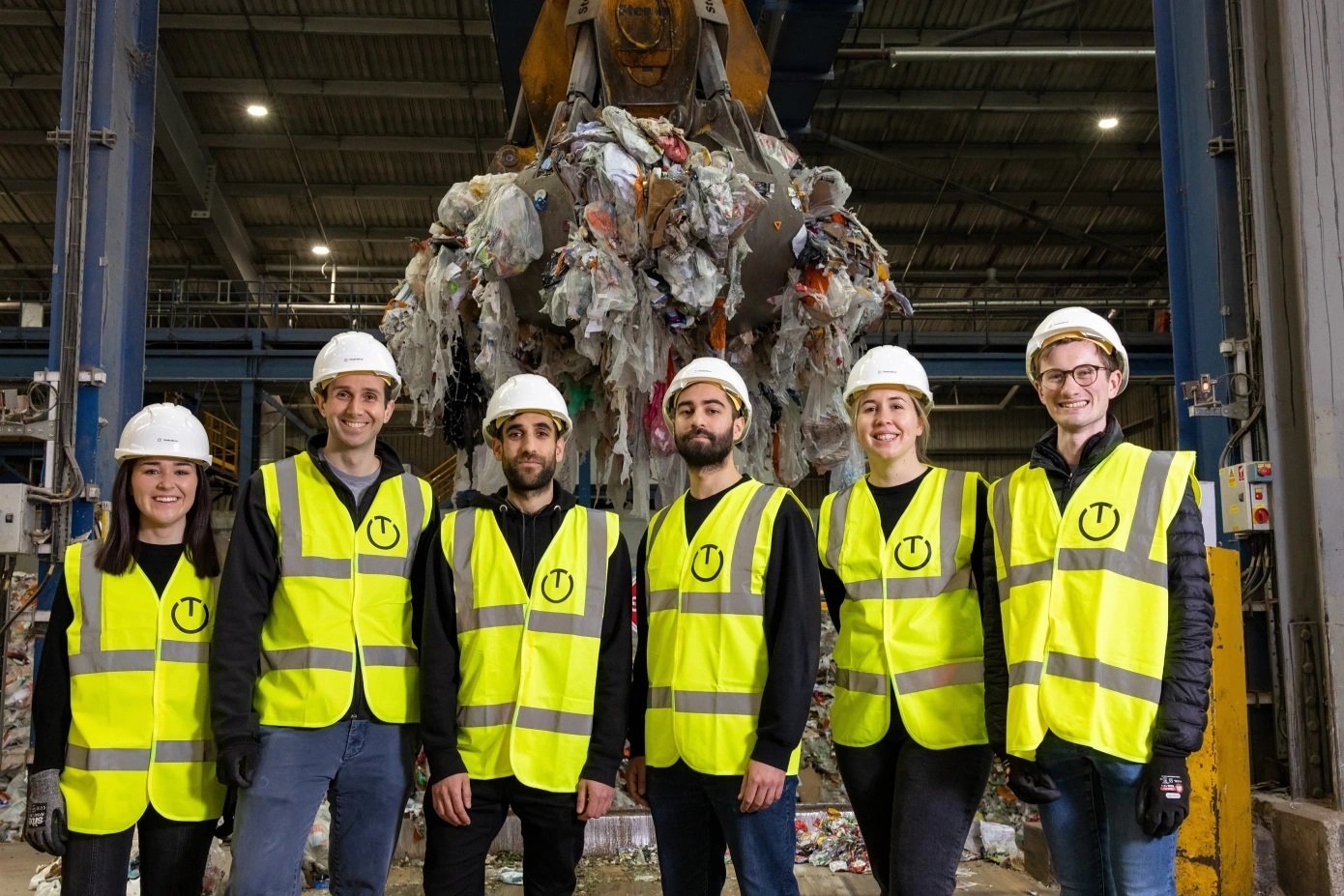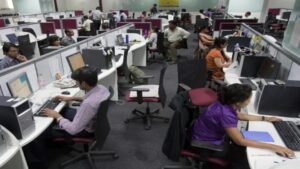UK-based TrueCircle, a computer vision startup founded just last year, has nabbed $5.5 million in pre-seed funding in a bid to bring data-driven AI to the recycling industry to improve recovery rates and quality — with the overarching goal of transforming the economics of waste reuse to shrink demand for virgin materials.
So far the startup has its tech up and running in eight UK waste sorting facilities but is ramping up quickly, with more launches coming in Q2 — when it will be expanding internationally into Europe and the US.
It tells TechCrunch it’s shooting to have some 30-40 customers using its tech within 12 months’ time.
The pre-seed is notable for its size. The round is led by Chris Sacca’s climate-focused Lowercarbon Capital fund, with participation from Passion Capital, Giant Ventures and firstminute Capital, as well as the founders of companies including Revolut, Monzo, Infarm and Unity investing in a personal capacity.
Commenting on TrueCircle’s pre-seed raise in a statement, Lowercarbon Capital’s Clay Dumas, said: “Single-use plastic is a 300 million tonne scourge on our oceans and landfills that keeps the petrochemical industry in business. We backed TrueCircle because they’re harnessing technology and markets to build a solution that scales to the dimensions of the problem.”
TrueCircle’s two co-founders, Eamon Jubbawy and Rishi Stocker, are not new to the startup game. (Indeed, Jubbawy actually has two startups on the go at once right now; the other being an a16z-backed fintech called Sequence.)
The pair, who originally met at school, tout a lot of relevant tech and business smarts they’re bringing to bear here: Including computer vision experience from Onfido, another of Jubbawy’s startups, where he built up a computer vision team focused on identity document verification and face matching (he left Onfido in summer 2020); and commercial experience from fintech startup Revolut, where Stocker was one of its first employees and spent four years running global partnerships. He also previously worked at FMCG giant Unilever, and says he’s no strange to the challenges of increasing packaging recycling rates.
Recycling isn’t the most glamorous topic ofc but low levels of efficiency in the waste processing industry are a pressing problem from multiple angles — not least when combined with humanity’s pressing need to radically shrink global consumption in order to cut emissions and avoid catastrophic climate change — meaning there are real, meaningful problems here that tech could help solve.
Problems that scale all over the globe, too. So the disruption potential — and revenue ‘opportunities’ — look huge.
Regulation is also driving a lot more attention to what’s passing down the conveyor belts, as lawmakers start to impose conditions on use of virgin materials for things like packaging — actively changing the economics of recycling.
Equally, widespread public anger over direct environmental impacts of discarded waste, like single-use plastic polluting the oceans and creating a risk to marine life, is creating energy for change.
Meanwhile AI-driven efficiency gains — and the digitalization of industrial processes more generally — are being specifically looked to to address climate change, including by policymakers in the Europe Union who are pushing a combined ‘green and digital’ transformation investment strategy for the bloc to try to hit net zero carbon emissions by 2050.
“The beauty of [our approach] is if you scale it up across the tonnage that’s been processed in the world today it’s a very scalable business model — if we were to just focus on this data-as-a-service business but our ambitions don’t stop there,” says Stocker. “I think this is the thing that gets us all super excited. We have a chance here to disrupt a $20BN per year industry through a much more digitalized trading infrastructure.”
“Historically, attempts to revolutionize this industry were maybe a bit more academic and technology based but I think the approach which we’ve taken, from our experience of building and commercializing technology companies — at Onfido; Rishi was heading up a lot of our monetization strategies at Revolut — we’ve realized you need a lot more than that,” adds Jubbawy.
“You need great tech but you also need to find a way to make this industry work commercially. Hence turning our focus to getting the sales process working really effectively because that’s just another reason why the recycling industry hasn’t been given the attention that it should.”
Rewinding slightly, TrueCircle’s founders are starting with a pretty elementary idea of applying computer vision technology to the waste streams flowing through processing facilities so it can provide its customers with real-time time flows of data on what’s passing through their plants — powering waste analytics and alerts.
This means the startup is installing connected camera and lighting kit in their customers’ waste processing plants — and doing that free of charge since the business model is a SaaS-style fee, based on the processing per tonnage scanned.
“What we realized is these facilities — their major issue today is they have absolutely no data,” explains Stocker. “It’s a completely data-sparse industry.
“In the absence of any data, on the composition of waste coming in, and more importantly the actual quality they’re able to achieve on those distinct output lines, they come across the same problem again and again: 1) Their buyers don’t trust what they’re purchasing so they always get underpaid for the materials. And 2) they actually don’t know when there are issues in their plant because they have no way of capturing real-time data.”
“That was the real lightbulb moment for us — especially where Eamon’s computer vision knowledge of setting up and building Onfide from scratch came into play — we realized with a few very quick tests, actually by installing a very cheap camera with a lighting set-up on the conveyor belts that are in these facilities we could then feed that data to the cloud and apply a computer vision machine learning model to tag every single item,” he adds.
We’ve seen this sort of idea before — such as by TechCrunch Disrupt battlefield alum Greyparrot (another UK-based startup), which was founded back in 2019 and already sells an AI waste recognition system that’s been globally deployed.
But TrueCircle suggests its approach is more “full stack” as it’s also building an automation piece, initially via digital alerts its system sends to factory employees when quality thresholds drop below a customizable level — providing them with a root cause diagnosis so they can take immediate action to correct a problem with their sorting machinery.
Later it says it wants to integrate the alert system with the plant’s machinery in order that its software could automatically undertake those sorts of corrections too.
“The next step that we’re working on now is actually programmatically integrating with their existing machinery — such that when we spot an issue we can adjust the settings of that device and ensure it resolves it without manual intervention,” says Stocker. “So that’s really where we want to get to. We want to be this data as a service layer that spots issues, fixes them and then certifies the quality to maximize the selling potential.”
There’s more too: In parallel, TrueCircle is building a marketplace to support waste processing facilities in selling the verified material they reclaim.
Here its premise is that it will be able to help facilities achieve better prices for the processed waste as a result of the data that will come attached to it — aka, the analytics and quality/purity guarantee its AI is able to provide.
So the pitch is that — finally — waste processing facilities will have the data to show buyers that ensures they can get a fair price.
“By having a bit more of a full stack approach, to helping recycling facilities work with each other, connect with each other, obviously have better data on what they’re doing and make better decisions you can get the whole industry working more effectively,” suggests Jubbawy.
“We go after buyers who care about quality,” adds Stocker. “We’ve been able to attract buyers from Germany, for example, onto the platform — because they can see exactly what they’re buying and they can place a bid that’s reflective of that quality.
“This is a classic data as a service business — at least in its first module — because now a facility can come onto the platform and say okay I want to understand the quality of my outputs to help our facility get better revenues from a range of buyers. So they’re able to log on and generate a report for buyers. When they sell material at the end of every month they’re able to attach this report of real-time data which shows the exact quality of that line to all of the buyers.”
“I come from the fintech world so I kind of bring it back to Moody’s ratings,” he adds. “We see it as we become this Moody’s equivalent for the recycling industry and then that enables us to build the rest of the infrastructure that the industry needs to facilitate efficient recycling.”
TrueCircle says its AI models can currently identify around 50 different categories associated with waste — such as the material of the item, its weight, the brand, whether it’s food grade item etc.
While accuracy rates for its waste scanning AIs are slated at between 92-98%.
And after two months, the startup says it was able to demonstrate — in “some” of the initial facilities using its alerts dashboard — that its customers were getting a 10-15% higher recovery rate vs how they were operating before, i.e. without any AI to keep an eye on waste purity.
Given the types of jobs set to be automated here — i.e. dirty, smelly and potentially dangerous low paid manual labor — this is one application of AI that might be more welcomed than feared, Jubbawy also suggests.
“Ultimately the reason I’m motivated by this is I remember reading Bill Gates’ book on How to Avoid a Climate Disaster where he categorizes all the causes of this 51BN tonnes of greenhouse gases that we need to remove and the unnecessary use of virgin materials for packaging adds around 2-3% — so well above 1Gigaton,” he says, adding that the team’s overriding motivation is “doing our part to get those 51BN tonnes down to zero”.
Source: =”https://techcrunch.com/2022/03/02/truecircle-pre-seed/” target=”_blank” rel=”noopener”>techcrunch.com














Add comment